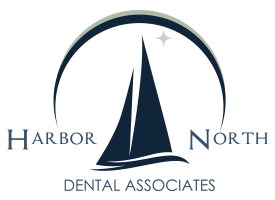Do You Think You Might Have Misalignment Of The Teeth?
Malocclusion, known simply as a “bad bite”, may be the culprit of a series of conditions like migraines, popping sounds in the jaw joint, dizziness, and ear pain or itching. When your teeth line up badly — be it from incorrect dental treatment, getting your dad’s dental genes, an unhealthy lifestyle or accidental oral trauma — it can make your life miserable. The good news is, malocclusion is treatable.
Temporomandibular Joint Syndrome (TMJS) is a problem more than 60 million Americans have.
For many years, the thought that a migraine headache was related to the jaw joint had not been given serious attention. But now it appears the dental and medical communities are in agreement that TMJS and chronic headaches/migraines are linked.
In fact, the majority of individuals wasted several years on the medical merry-go-round, seeing doctor after doctor, before they arrived at our dental practice, often as a final, desperate plea for relief. That is due to the fact that most people don’t know that their particular symptoms are actually linked to malocclusion.
Research from the University of Pennsylvania School of Dental Medicine evaluated the existence of Temporomandibular Joint Syndrome in twenty-four patients referred to a neurology clinic. The goal was to identify the number of individuals referred to a neurology center for headaches where TMJS would be the foremost source of pain. They discovered that 11 of the 24 individuals with headaches had TMJS. That percentage, nearly half is thought to be a very high proportion compared to the 15% in the total population of TMJS sufferers.
As scientific opinion proceeds to mount on the association between headaches and TMJS, people who believe they have this condition should talk with any staff member at Harbor North Dental. We have pursued advanced training in this treatment.
Signs of TMJ
• Clicking or popping whenever opening your mouth
• Excessive yawning as you try to adjust your jaw
• Chronic headaches and/or migraines
• Light headedness
• Pain in jaw muscles
• Itching ears
• Jaw occasionally locks up whenever yawning
• Cramps or spasms within the jaw region
Other symptoms that may not at first seem connected to malocclusion include shoulder, neck and back pain. Even though pain in the upper body could be seen as having no relationship to the mouth area, individuals suffering from malocclusion are likely to repeatedly tilt their heads, compelling the muscles of the back, neck and shoulders to compensate.
Tingling or numbness in the hands and arms has been known to be associated with malocclusion. The symptoms most likely are from muscle spasms in the jaw, neck, back, and face pinch nerves leading down the arms to the hands.
And, finally, you can develop chronic depression after years of daily pain.
If you have any symptoms like these, speak with any member of the Harbor North Dental team. Our treatment methods usually consist of absolutely no pills, zero shots, zero surgery, and no adverse reactions. We are able to take care of these difficulties because they’re most probably due to clenching your teeth while you are asleep and sometimes throughout the day. If you clench your teeth, you use some of the most powerful muscles in your body. These muscle contractions can cause early morning headaches and/or stress headaches, and even damage nearby ligaments, teeth, and other muscles.
Most dental treatment to cure malocclusion necessitates the use of a splint, or an oral device which temporarily adjusts the bite. In more serious cases, Harbor North Dental can propose a long-lasting improvement in the bite with tooth replacement, shifting teeth through orthodontic therapy, or perhaps a combination of bonding and crowns or veneers. For most individuals, the results were effective and their return to a pain-free state has offered them one more chance for a considerably more successful life.


